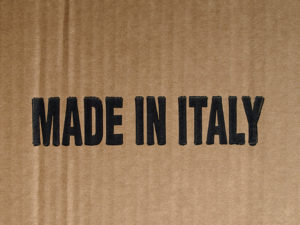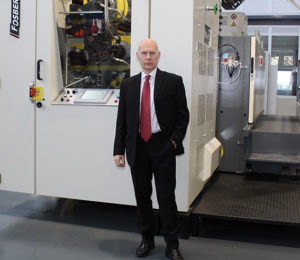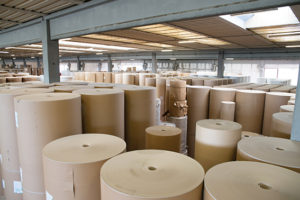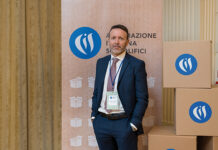
This multidisciplinary Advisor company dedicated to corrugated board companies has carried out a research about the needs of companies operating in Italy in the corrugated board sector
Active on the market since the end of 2017, Nexpack, which has its headquarters in Lucca and an operational office in Parma, is a multidisciplinary Advisor for corrugated board, multinationals and SMEs, integrated companies, corrugated board and box manufacturers that combines vertical managerial expertise (on corrugated cardboard & packaging) to transversal ones obtained in several sectors.
“Nexpack offers solutions for all business areas. We operate in the sector of management consulting and business organization, offering specialized assistance to small and medium-sized companies, large corporate groups, holding companies belonging to the corrugated cardboard sector; for some kinds of activities Nexpack uses selected partners, highly qualified and integrated with their own methodologies. In summary, specialized organizational consultancy, increased by the qualified transversal one, know-how that makes a big difference and allows us to provide always our clients with customized and concrete solutions, speaking their own language”, says Dr. Francesco Pagliarini, founder of Nexpack.
With its “Needs Analysis”, Nexpack wanted to investigate, through interviews with involved managers and company owners, problems and modus operandi emerged from their industrial activity and also to receive their personal point of view both for micro and macro issues of sector, analyzing the data in an objective manner.
The survey was carried out between October 1, 2018 and February 18, 2019, conducted anonymously on a sample of 170 references selected from the 4 categories/clusters taken into consideration: paper mill, cardboard manufacturer of corrugated cardboard sheets), integrated companies, box factory, with a final participatory response of 24%, with a 65% representation of owners and top managers.We deepen our knowledge of Nexpack and this analysis about the needs of corrugated cardboard companies with an interview with its founder.
Face to face with Francesco Pagliarini, founder and CEO at Nexpack

Dr. Pagliarini, can you explain us who is Nexpack, why was it born and what is it doing?
“Nexpack is an Advisor specialized in business organization that provides consultancy services to companies in the corrugated board & packaging sector”.
Why did you make this in-depth research on the corrugated board sector?
“Nexpack is the specialist division for carton/packaging sector of another company that has been operating for about 14 years in the world of management consulting and which includes references and top-level partnerships, national and international, in all manufacturing sectors.
A couple of years ago we conducted an exploratory analysis on behalf of an entrepreneurial group in the cardboard sector and we got to know companies in the sector and their properties/directions.
Apart from the IT players, generalist consulting companies, university emanations, we realized that there were valid specialist consultants in the sector, especially in the technical/production area, but not realities that could provide a global service.
Moreover, last but not least, I personally come from the world of cardboard, my first great love, from which I have never been detached, always maintaining human and professional relationships, I had the privilege and the good fortune to work in national and multinational companies, after this I completed my managerial expertise in IC&T sector; increasing knowledge and working in more areas is, in my opinion, a fundamental aspect.
My professional and multidisciplinary path has led me to understand 3 fundamental things:
– Human capabilities cannot be separated from technological ones, one cannot exist without the other;
– The sector had positive years, given the current difficult economic situation, which began at the end of 2018, it also entered a phase of economic contraction and is facing a very delicate “cultural” and generational evolution, where new ideas are needed, but also new strategies, methods of application to work, which cannot be produced only by the correct use of new technologies and by computerized automation;
– There were no structures that could support businesses in different areas, knowing well the particular business and all the players in the supply chain. From these reflections was born first the idea and then the Nexpack project”.
What topics have been studied?
“We have tried to analyze all the topics of daily activity of the companies in the sector (apart from the finance area, probably in this area we will do something in the future together with our partner Deloitte), above all, the organizational, industrial aspects and management, but also those “humoral”, the sentiment and the different visions of present and future”.
What trends are present now in the industry?
“It is not a novelty that the sector is always in surplus of offer, despite having closed the previous years with percentages of increase, the production sites are on average exploited between 60 and 68% (less in difficult periods) and is concentrated for about 60% of the volume in 6 – 7 national and international groups; there has been and there is still a certain redistribution of market shares, however, there are companies “independent” sized and profitable with margins of growth, but even smaller virtuous companies that can consolidate their position and/or develop themselves or through alliances.
The demand entered into suffering, the problems linked to the paper and recycling market, considering my experience, are conditions that can also accelerate paths in this direction and facilitate other aggregation processes that could perhaps improve and give stability from many points of view”.
What is the data that emerged that most surprised you and on which it is worth pondering?
“Companies, regardless of size, still do not feel part of a unique system. With the exception of larger companies, there is little inclination to open up to the outside and a certain mistrust. But there is trust in the new generations.
The technological innovations on the lines, both on paper plants and for production of cardboard and for packaging converting, allow better industrial performance, but to affect strategic, economic and “mental” aspects, they must be part of well weighted industrial and commercial policies.
Can we extrapolate from this work a overview of situation and performance of the companies in the corrugated sector operating in Italy?

“As said before, after a few positive years for all the clusters in the supply chain, from the end of 2018 to the present the sector has been struggling, due to the economic situation.
We could take as a reference an average profitability threshold, such as the ratio between % industrial costs/turnover, for small businesses (number of employees ≤ 20) ≤ 91%, for medium-sized companies (number of employees ≤ 50) ≤ 93% and for large companies (number of employees ≤ 250) ≤ 95%.
But these are averages and can be influenced by multiple factors and technicalities, such as whether they are independent or belonging to groups: therefore, they are only indications.
The sector is however substantially healthy and with growth margins still possible, not so much in volumes as in trying to give greater value to cardboard/packaging product, considering its characteristics: user friendly, recyclable, “low cost”, economic marketing carrier, eco-sustainable model.
A unique communication and marketing policy would be needed, perhaps greater and more incisive, certainly common and shared by all the different souls of the chain”.
Given the results that emerged, what advice would you give to an entrepreneur?
“I could answer with a famous phrase – the only thing I know is to know that I don’t know – so I don’t have the presumption to give advice as an entrepreneur to an entrepreneur, but as a manager to an entrepreneur, I would suggest to make companies more open, to understand that if for many years one has always worked in a way, with the passage of time it is not said that the same way of approaching and seeing things is always the right one, because the world changes and because the qualitative level of the competition and customers has risen considerably.
Creating professionally managed companies, reviewing processes and work protocols, using the delegation of tasks and responsibilities, asking managers for greater sharing and responsibility for results. Investing above all in human resources, both in training and in the recruitment of stimulated and stimulating people with real skills, paying more attention to areas such as logistics, do not underestimate the existence of possible intangible and submerged costs between work flows of office departments, efficiency and quality in sales management. For smaller companies, it is necessary to specialize more and more, thanks to new technologies, in profitable market niches and increase the level of service”.
What actions do you foresee in developing your strategy for the second half of 2019?
“Nexpack will continue on the road we have just begun, offering itself to the market as a reference partner and increasingly providing the best professionalism and support to businesses, using our usual approach and style, that is moving on tiptoe, with lights off, with humility and confidentiality. Another novelty that distinguishes us is also that we share with our clients the objectives achieved as a result of our activity and linking part of our remuneration to these results”.






















